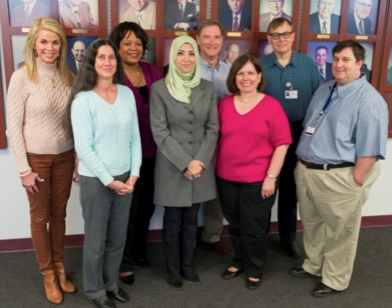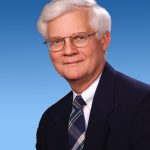New quality enhancement plan for TAMBCD

Faculty and students alike stand to benefit from a new quality enhancement plan that will launch this month at Texas A&M University Baylor College of Dentistry. The new plan, titled “Teaching, Evaluating and Applying Critical Thinking in Healthcare” — TEACTH — aims to enhance the integration of critical thinking skills within the dental curriculum.
The methodology is twofold. Beginning Nov. 25 during a faculty retreat, workshops and training will focus on improving the capacity of faculty to provide learning experiences that challenge students to use critical thinking skills. A second phase will involve curriculum enhancement, primarily through the purchase of additional intraoral cameras for use in the college’s clinics. These cameras will be available in spring 2015 and will link directly to axiUm — which TAMBCD uses to manage clinical and patient records — so that students can diagnose and make treatment plans even when patients are not at the school. With the swipe of an ID badge, students can view their patients’ digital X-rays and photographs in one central location. This will aid in caries risk assessments and offer students additional time and opportunities to hone critical thinking skills related specifically to dentistry.

The flagship quality enhancement plan established at Texas A&M Health Science Center in 2012, known as CARE — Critically Appraise Relevant Evidence — focused on critical thinking skills and evidence-based decision making but operated under centralized support. The revised quality enhancement plan allows for each TAMHSC component — dentistry, medicine, pharmacy, nursing and public health — to initiate and maintain its own plan, offering the opportunity to create individualized programs that complement each health care discipline.

Drs. Beverly York; Janice DeWald; Lavern Holyfield; Amal NourEldin; Steve Karbowski; Christine Beninger; Paul Dechow; and Darren Roesch.
Not pictured: Dr. Stephen Griffin; Carmina Castro.
To this end, TAMHSC established The CARE Innovative iNstruction Grant to reallocate funds that were once directed to CARE. TAMBCD’s TEACTH proposal, submitted by Dr. Lavern Holyfield, director of faculty development, and Dr. Paul Dechow, Regents Professor and chair of biomedical sciences, was approved with $9,200 in direct support out of a $10,000 maximum allowable to each college. The dental school contributed an additional $5,300 toward the program.
As faculty at TAMBCD prepare to roll out this new initiative, here is what the dental school’s key planners have to say about the mindset behind TEACTH:
 “The new strategy allows each component to design a project that addresses its specific needs and interests. Thus the positive benefit of the project can assure that the intended outcomes will be achieved.
“The new strategy allows each component to design a project that addresses its specific needs and interests. Thus the positive benefit of the project can assure that the intended outcomes will be achieved.
“Specifically, faculty will be better equipped to incorporate critical thinking into their classroom, laboratory, preclinical and clinical instruction and to assess the ability of predoctoral dental students to think critically. Secondly, the TEACTH project can serve as a model for the integration of critical thinking into the clinical curricula of other dental educational institutions wanting to stimulate and assess critical thinking by their students.”
—Dr. Charles Berry, associate dean for academic affairs “Here at TAMBCD, we had already accomplished most of our previous quality enhancement program through evidence-based dentistry, however, we had not developed the inclusion of critical thinking into the curriculum to the extent that we would like. This new model allows us to focus on that part that needs the most work at our college, namely the critical thinking piece.”
“Here at TAMBCD, we had already accomplished most of our previous quality enhancement program through evidence-based dentistry, however, we had not developed the inclusion of critical thinking into the curriculum to the extent that we would like. This new model allows us to focus on that part that needs the most work at our college, namely the critical thinking piece.”
 “I am enthusiastic about the development of the TEACTH model and its impact on the ability of students to apply critical thinking skills in the diagnosis and assessment of caries risk in clinical settings. This should, ultimately, result in improved oral health outcomes for patients.”
“I am enthusiastic about the development of the TEACTH model and its impact on the ability of students to apply critical thinking skills in the diagnosis and assessment of caries risk in clinical settings. This should, ultimately, result in improved oral health outcomes for patients.”